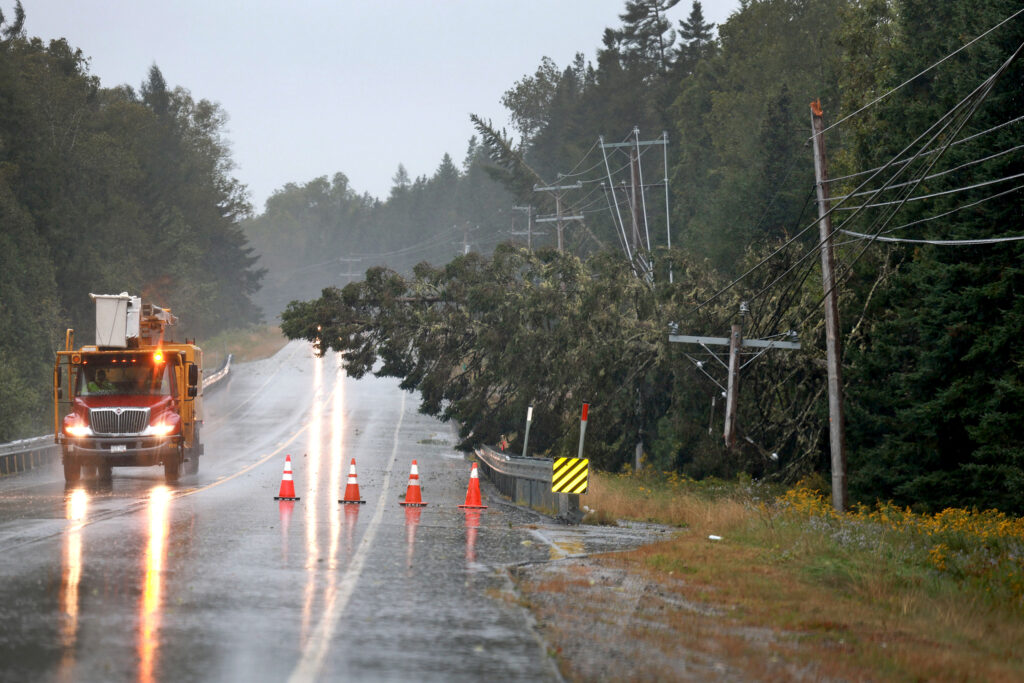Published by Inside Climate News on November 18, 2024.
If you trace the path of one electrical transmission line up the coast of Maine, through and around the state’s rocky outcroppings and over a long causeway, you’ll finally reach the island city of Eastport, 40 miles from the transmission line’s origin. Here, at the line’s terminus, sits the U.S.’s easternmost city and the East Coast’s deepest port, once a thriving hub of imports by sea.
Today, the city is home to about 1,300 residents, who are no strangers to the harsh winds and strong rains that give remote islands like this one their rugged character. When big storms rip through, as back-to-back nor’easters did this January, Eastport loses its sole tenuous connection to electricity from the mainland. In 2018, the city’s backup diesel generator shut down and was never replaced, leaving residents to buy their own gas generators or sit in the dark and wait out the hours until the utility could restore power.
“We’re yankees. We’re used to it. We got candles and lanterns stashed away, and we usually get a bucket of water when it looks like the power is going to go out,” said Jeanne Peacock, an Eastport city councilor and founding member of the city’s energy committee. “But it would be nice for everybody else if that didn’t happen.”
The quest to make Eastport energy resilient has put the city at the forefront of Maine’s renewable energy transition and made it a leader in energy independence work for remote communities in the state and beyond.
In 2021, the city was awarded an Energy Transitions Initiative Partnership Project grant from the Department of Energy, which funded work to develop localized energy generation and storage.
Now, a community-driven initiative is developing solar and tidal power to feed a microgrid. It would allow the island community to weather hours of outages, detached from the main electrical grid without the high costs and carbon footprint of diesel. The grant launched the feasibility studies and produced the plans for the transition that Eastport is in the middle of building out.
“This very small city on the very eastern edge of the United States is developing what would be a world-class energy facility,” said Nick Battista, the chief policy officer at the Island Institute, a Maine-based nonprofit that assisted Eastport in applying for the grant and is working to continue its implementation.


